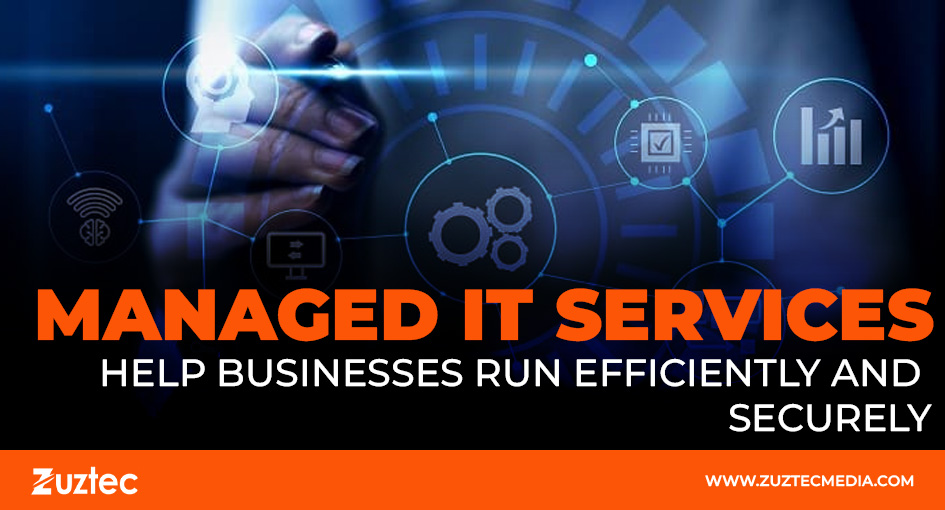
Managed IT Services Help Businesses Run Efficiently And Securely
Technology plays a vital role in business operations, from cybersecurity and customer service to communication and data storage. As companies grow and become more dependent on digital tools, maintaining IT infrastructure becomes more complex and time-consuming. For many small to mid-sized businesses, managing everything in-house can be overwhelming. This is where managed IT services offer an effective solution. These services are designed to provide businesses with proactive, round-the-clock technical support without the burden of building a full internal IT team.
Businesses can access a group of experts who continuously monitor, maintain, and troubleshoot systems by collaborating with an IT services provider. From software updates and hardware maintenance to network security and system backups, these experts take care of it all. This keeps internal teams’ technology current and safe from attacks while allowing them to concentrate on important business tasks. In order to keep businesses online and productive even in the event of an emergency after hours, many providers also provide 24/7 support.
One of the biggest advantages of using IT services is cost-efficiency. Rather than investing in expensive infrastructure and hiring full-time IT staff, businesses pay a fixed monthly fee for expert support. This predictable pricing model helps organizations control costs while still benefiting from enterprise-level solutions.
Managed It Services Offer Proactive And Reliable Support
Traditional IT support models often work on a break-fix basis—meaning action is taken only when something goes wrong. Providers monitor systems in real time to detect and fix potential issues before they affect operations. This includes checking for unusual network activity, applying updates and patches promptly, and running scheduled maintenance to keep systems optimized. As a result, businesses experience fewer disruptions and can maintain high productivity.
Managed services also provide strategic planning and consultation. Providers assess your current IT setup, identify vulnerabilities, and recommend upgrades or improvements. They help align your technology with business goals, whether that means migrating to cloud solutions, enhancing cybersecurity measures, or improving data storage systems. This ensures your IT infrastructure evolves alongside your company, rather than holding it back.
Another key benefit is centralized management. With IT services, all devices, networks, and software are managed from a unified platform. This makes it easier to apply consistent security policies, monitor usage, and respond to incidents. For companies with remote teams or multiple locations, this centralized approach ensures that every user gets the same level of protection and support, no matter where they are working.
Security And Compliance Are Enhanced With Expert Oversight
Data breaches, ransomware attacks, and phishing scams can cause significant financial and reputational damage. Managed IT services help mitigate these risks by implementing strong security protocols. Providers set up firewalls, antivirus software, and encryption tools to protect sensitive data. They also perform regular vulnerability scans and penetration testing to identify and fix weak points in the system.
Another important area is compliance. Failure to comply can result in hefty fines and legal trouble. Managed service providers understand these regulations and help businesses implement the necessary safeguards. This includes maintaining audit trails, securing client records, and ensuring data is stored and transmitted properly. By partnering with experts, businesses can stay compliant without needing to master every legal detail themselves.
In addition to protection, managed services also ensure fast recovery in case of a disaster. Whether due to cyberattack, hardware failure, or natural disaster, system downtime can be costly. Providers set up regular backups and disaster recovery plans that allow businesses to restore operations quickly. This level of preparedness ensures continuity and builds customer trust.
Scalable Solutions Support Long-Term Business Growth
As businesses grow, their IT needs change. They may need more users added to the network, better collaboration tools, or new software platforms. Providers can add new services, upgrade existing ones, or reconfigure systems to meet new business goals. This adaptability makes it easier to support new locations, onboard new employees, or adopt new technologies without starting from scratch.
This model is especially valuable for startups and small businesses that may not have the budget or expertise to build a comprehensive IT department. Businesses can compete with larger firms by leveraging the latest tools and technologies, all managed by experts. Additionally, the subscription-based pricing allows for better financial planning and eliminates unexpected IT expenses.
Another important aspect is that managed services free up internal teams to focus on innovation. Instead of troubleshooting system errors or chasing updates, your team can work on product development, customer experience, or marketing strategies. This shift in focus supports long-term growth and allows businesses to adapt quickly in an ever-changing digital environment.
However, managed IT services play a crucial role in helping businesses operate smoothly and securely. By offering proactive support, enhanced security, and scalable solutions, these services allow companies to stay ahead of technical challenges while focusing on their core goals. The flexibility and expertise provided by IT services providers reduce costs, improve efficiency, and create a solid foundation for growth. For any business looking to optimize its technology while maintaining control over expenses, investing in IT services is a smart and future-ready decision.

